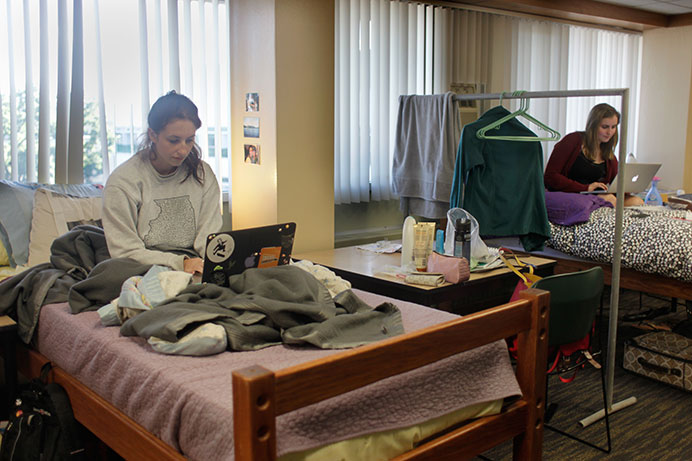Hannah Soyer
[email protected]
At the state Board of Regents’ meeting on April 20-21, the members will decide whether to raise the cost of housing and dining at the state’s three public universities. At the University of Iowa, the increase in rates for a double room with air would go from $6,345 to $6,527. At a $182 price hike, it would not be a monumental increase, but it is an increase nonetheless. The regents have raised the costs for housing and dining slightly each year over the past five years. This year, the increase will account for the cost of new buildings, specifically new residence halls.
RELATED: Time to update sex-ed classes
I understand that the money to pay for these operations has to come from somewhere. What I don’t understand is why this has to come from the students’ pockets. If the money is being used to build new residence halls, then there are a couple of options. First, the university could stop increasing the number of students it admits. If the number of incoming students remained around the same, then there would be no need for more residence buildings to be constructed.
This isn’t the best solution, though, if we want to make a college education more affordable and readily available to all people. The goal of doing this is to allow more people to attend college, and so an increase in the number of residence buildings may very well be necessary. But if college is meant to be more affordable, having the students pay more for this doesn’t make much sense.
Perhaps the best solution, then, is to find a way to redistribute the wealth of a college campus. Perhaps multimillion-dollar renovations to buildings that are more for aesthetic purposes than functionality need to be revisited. It seems as if some sort of construction is always being done on the university campus, most recently the construction on the IMU. As much as I love the river terrace study spot and the renovated ground floor, I’m not sure how much of it is actually needed. On top of this, the distribution of funds to medical buildings, College of Business buildings, and athletics facilities are clearly more heavily weighed than those allowed for the renovations of buildings in the College of Liberal Arts & Sciences.
But I’m not asking for the liberal-arts school to receive more money for building renovations, as dreary as EPB is. I’m asking for the other more privileged colleges and departments to receive less and for this money to be used for whatever projects the university has in store, instead of taking this money directly from students. EPB might not be the greatest building, but it certainly works.
If we’re going to talk about the redistribution of wealth, it is also worth discussing the salaries of some of the top officials. President Bruce Harreld’s yearly salary is starting at $590,000, while former President Sally Mason’s salary was $525,000 when she retired this past year. That’s a $65,000 difference. Why? Because Harreld was given a vote of no confidence by the UI Faculty Senate? Because he’s a businessman and has barely any experience in academia? It doesn’t make sense to increase the salary of our university’s unqualified president while also increasing the cost of housing and dining for students.
The regents have expressed doubt over this proposal to raise housing and dining costs, mainly because of the added financial burden it will be to students and their families. Hopefully, this proposal will not be approved at the meeting in April.







